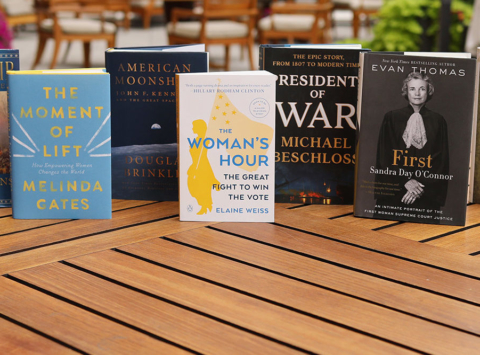This post was written by Suji Strain-Kokich on behalf of the Case Foundation:
The Rid All Green Partnership, founded by Damien Forshe, Keymah Durden and Randell McShepard, launched in 2010 in an effort to transform a once illegal dump in the Kinsman neighborhood of Cleveland into an urban farm. As a participant in the Aspen Ideas Festival Pitch Competition hosted by the Case Foundation, Rid All Green received the audience-favorite award and $5,000 to create a new greenhouse for the project. We sat down with Randell for our second installation in the feature series on our pitch competition winners.
The Rid All Green Partnership’s farm not only serves as a place to grow and harvest fresh food, but also as a place to serve the community through education, job growth and training. As one of 15 regional training centers for Growing Powers Inc., a national nonprofit organization and land trust, the program is changing the way urban communities use vacant land.
After three years of operation the Rid All Green Partnership has converted a 1.3 acre vacant lot into a thriving farm, replete with two greenhouses, four hoop houses, two ponds harvesting more than 4,000 Tilapia fish, a teepee and an industrial compost station that processes up to 40,000 pounds of food waste per week. Their cadre of more than 500 volunteers supports the organization in this fearless endeavor to change the way that vacant land is viewed and utilized in Ohio and many other urban communities.
CF: Tell us what you think it means to Be Fearless.
RS: Being fearless means taking risks and attempting to do what has not been done before without concern or care about failure or negative consequences. It’s about following your heart, your passion and your gut. Get it done by any means necessary!
CF: What goals are you working towards at the organization? How will the Case Foundation’s funds help you achieve that goal?
RS: We are working on building a national model that connects urban agriculture with environmental stewardship, youth education, community building and place making. We believe that urban agriculture can open up many new doors that address urban ills such as unemployment, violence, school drop-out and poor diet. The Case Foundation, with its financial support and prominent standing in the philanthropic community will help us to garner attention, as well as additional support. It will also help us to pilot innovative programs.
CF: Can you tell me about a moment when you failed professionally and how you used that as an opportunity to fail forward?
RS: The first Farmer’s Co-Op that we initiated failed and led to lost revenues and many frustrations. However, we took every piece of our operation apart, analyzed what went wrong, noted how we would do things differently, sought out advice from experts, dusted ourselves off and tried it again, with much improved results!
CF: How have reached outside of your bubble or your sector to raise awareness or perhaps funding for your organization?
RS: The coolest thing! We wanted to educate urban youth on farming and healthy eating and wanted to do it in a way that had never been done before that would be cool, hip and out of the box. So we started a comic book series called “Brink City: Green in the Ghetto” and started doing essay contests in schools. We then built on the content of the comic books and did a stage play, which attracted 1,000 people and was a huge success. We have recruited sponsors for the comic book (in addition to direct sales), which has generated income for the enterprise.
Learn more about the Rid All Green Partnership HERE and check out this video with Randell as he gives you an inside look at the program.





